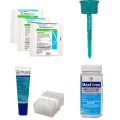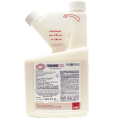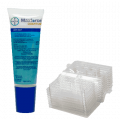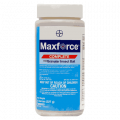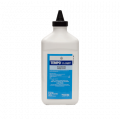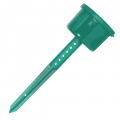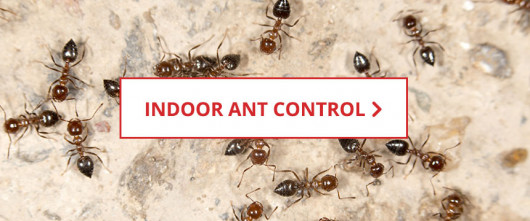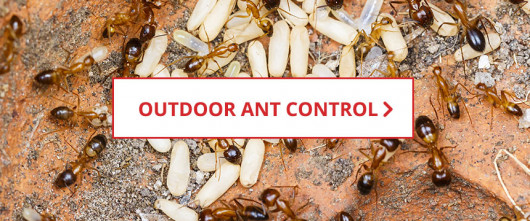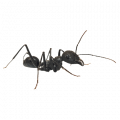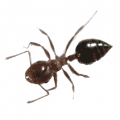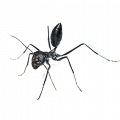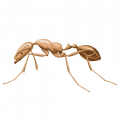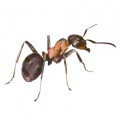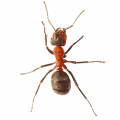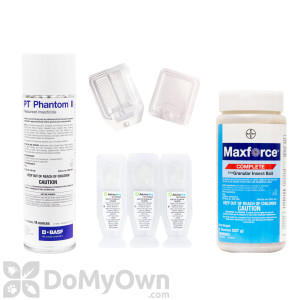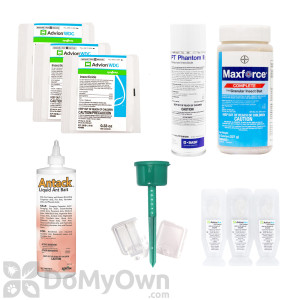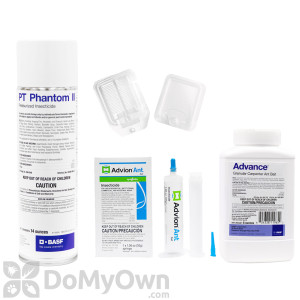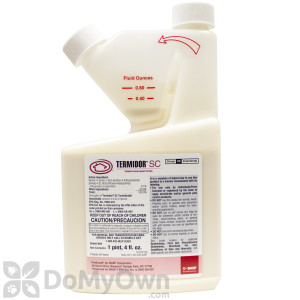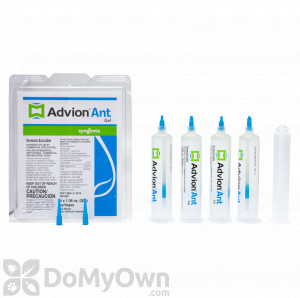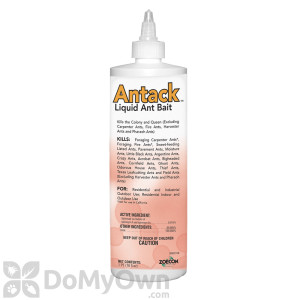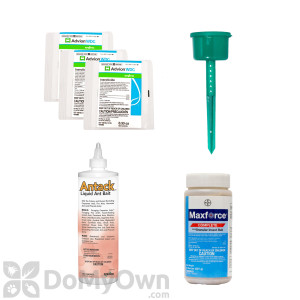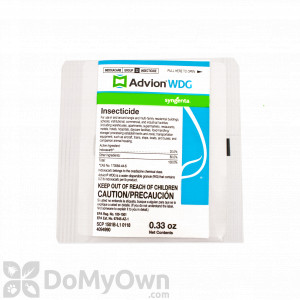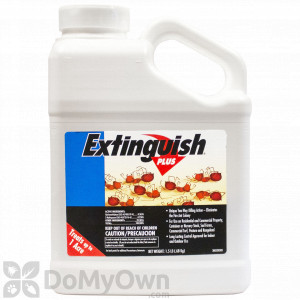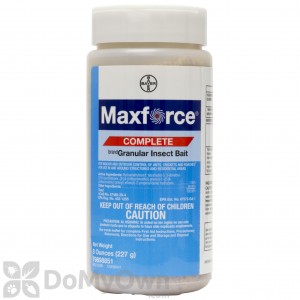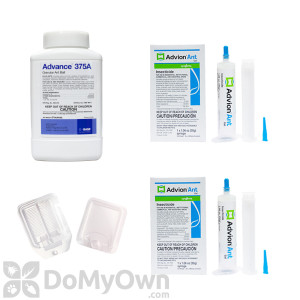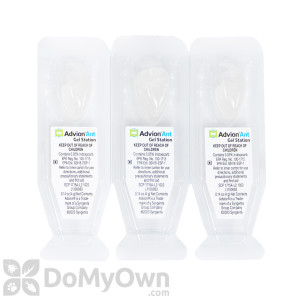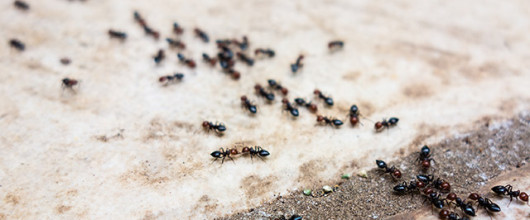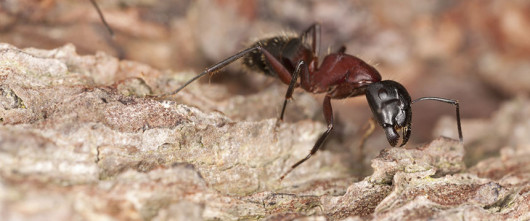Ant Control Products
Shop By Ant Type
Find the right treatment for the ants you have
Recommended by Our Pros
Tackle your ant problem with the professional products recommended by our pros
Most Popular Ant Control Videos
Shop Ant Control Products
How To Get Rid Of Ants
 Knowing how to get rid of ants is the first step in your adventure to live ant-free. There are many different kinds of ant killer products available on the market today. One of the most professional ant control products you can buy is Termidor. This product is effective at killing the entire colony of ants and not just the ones you see. If you were to ask any exterminator which product they would recommend for a serious outdoor ant control problem, they would most likely recommend Termidor. It is easily one of the best ant killer products available.
Knowing how to get rid of ants is the first step in your adventure to live ant-free. There are many different kinds of ant killer products available on the market today. One of the most professional ant control products you can buy is Termidor. This product is effective at killing the entire colony of ants and not just the ones you see. If you were to ask any exterminator which product they would recommend for a serious outdoor ant control problem, they would most likely recommend Termidor. It is easily one of the best ant killer products available.
How To Get Rid Of Ants in the House
To get rid of ants in the house, we recommend using products such as ant traps (also known as ant bait stations). Ant baits and traps are very effective solutions for getting rid of ants in the house, as well as outdoors.
Killing Ants Is Easy With Our Help
There are all kinds and sizes of ants. Some people might fear the larger ants the most, but the truth is that the smaller ants, which live in colonies of huge numbers, are the more difficult ants to control. At Do My Own Pest control we will teach you how to kill ants effectively so you don’t have to worry about that never-ending trail of pests for a long time. Getting rid of ants is easy and we will guide you through the entire process. Give us a call at 1-866-581-PEST.
Interesting Facts About Ants
Despite the fact that ants are one of the most annoying pests around, they are actually one of the most interesting little creatures too. Here are some “did you know” facts about ants:
- Did you know that there is a special kind of ant that just hangs up side down its entire life? This kind of ant is a group of ants that resides in the Honey Ant colonies. This ant is called a “replete”.
- Did you know that there are approximately 8,800 different species of ants known throughout the world?
- Did you know that Fire Ants occasionally eat little pieces of magnetite? Having this mineral inside their bodies is what creates an internal compass and allows the ants to find their way in the dark.
- Did you know that if the average sized human being were as strong as an ant he or she could lift approximately 9,000 lbs?
- Did you know that the largest ants in the world can grow up to one and a half inches long? That’s about this big |----------------------------|! That’s one big ant! These kinds of ants are called Diver Ants and they live in Africa. Even Carpenter Ants can measure up to one inch long so don’t think you have to live in Africa to see a large ant.
Quick Tips for Ant Control:
Tip #1: Treat most ant problems using professional ant bait. Ant bait works best because the worker ants are able to carry the bait back to the nest where it eventually kills the entire colony including the queen. Many over-the-counter ant control products will only kill the ants you see and not the queen, causing the infestation to continue.
Tip #2: Once you've controlled the ants with baits, it's time to put up a defense around your home to keep ants from coming back. Use a residual insecticide spray labeled for ants such as Dominion 2L or Optigard Flex around the outside of the home and dust under baseboards and in wall voids using a pest control dust. Doing this will put a nice barrier around your house keeping ants and other insects out.
Additional Ant Control Information
Prevention:
The best approach to ant control in the home is cleanliness. Any type of food or food particles can attract and provide food for ants. Store food in tight containers. Remove plants that can attract ants or control aphids, whiteflies and other insects that produce honeydew. Reduce moisture sources, including condensation and leaks. Inspection. Location of the nest is the key to control because ants are social insects. Large numbers of individual ants can be killed without ever solving the problem. Determine the kind of ant species. Most species of ants never enter buildings; others build their nests near buildings and forage indoors. Others usually nest indoors.
Keep a record of where ants have been seen. Some ants follow definite trails. If possible, follow these trails to the nest. Placement of attractive materials, such as jelly, oils, protein and other materials can attract large numbers of ants so they can be followed to their nest.
Often children like to watch ants and can be very useful in tracing their trails. Outdoors, ant nests can often be located by seeing ant hills on the ground. Some ants deposit earth on the soil surface when they construct the nest. Fire ants and certain other ants build conspicuous mounds. Nests may also be constructed next to or under the house foundation, under sidewalks, driveways and patios, or in decaying logs or tree trunks.
Indoors, ants may nest in walls, behind a baseboard or under the house. Often ant trails enter through a crack but the nest may be some distance away. Some ants may also nest in decayed or rotting wood in the house.
Chemical Control:
Ants can be controlled with baits, crack and crevice treatments, indoor space and surface treatments, outdoor barrier and broadcast treatments, as well as void and attic treatments. However, methods that target individual trails of ants such as crack and crevice treatments and indoor space and surface treatments are usually a "quick fix" and ineffective in the long term because they do not significantly reduce the ant population and do not affect the queen.
Ant baits, however, were developed to exploit the foraging and nest mate feeding behaviors of ants. Bait treatments are effective for control of many ant species. Since ants rely heavily on trophallaxis (reciprocal feeding), the bait toxicant can be thoroughly distributed to the members of the colony, including the queen and brood. Baits are effective because they not only kill the foraging members of the colony, but they kill the queen(s) so no other ants are produced.
The ideal bait contains a slow-acting, non-repellent toxicant that is incorporated into a preferred food substrate. There are many types of baits on the market.
In general, ant baits can be found as:
*Granules for broadcast
*Liquids
*Gels
*Ready-to-use, tamper resistant containers
Both granules and liquids can be used in specially designed stations. Liquids are usually prepackaged for use or come as part of a system that uses a bait station. Gel baits usually come prepackaged in large syringes for crack and crevice treatments.
For large areas, the most efficient management method is to broadcast bait with a granular. The application rate for most granular bait labels is 1 to 1.5 lb. per acre. This rate translates into about 7 to 9 granules per square foot for most baits. Granular ant baits can be broadcast in the landscape around structures and in lawns. Most granular baits that are labeled for broadcast use are also labeled for individual mound or nest treatments.
Use the following guidelines for successful baiting:
*Use fresh bait. If the bait is not fresh, ants will be less likely to eat it. Ants must eat the bait in order to be effective. If the bait smells like rancid oil or stale potato chips, the bait is spoiled.
*Wash your hands before baiting to prevent contamination from other products (and after baiting).
*Do not smoke while baiting. The nicotine will contaminate the bait.
Timing of the application is as important as the choice of control. Granular broadcast applications should be done in good weather. A good rule of thumb is to bait on a day that you would have a picnic; about 70 to 90°F and not immediately before or after a drenching rain. Also, turn off any irrigation for a few hours before and after baiting.
*Bait after the dew, rain or irrigation has dried. Water can ruin baits.
*Bait where you see the ants foraging.
*Store bait in an airtight container and place in a cool dry place, away from other pesticides or potential contaminants.
*Gel baits are particularly useful in crack and crevice treatments. In all cases of bait use, do not spray any insecticides around the bait application. Sprays are repellent and if they contaminate the bait, the bait treatment will be ineffective because the ants will not eat it.
For heavy infestations, we recommend a 3-Step Program:
1. Treat the perimeter with a repellent liquid or granular insecticide.
2. Broadcast bait with the appropriate product for your ant problem.
3. Individually treat remaining infestations, whether they are indoor or outdoor, such as fire ant mounds.
Can't find the product you are looking for? E-mail us and we'll get it for you!
We sell professional do it yourself pest control (diy), exterminator and
extermination insecticide, pesticide, chemical and bug killer treatment
products to spray, eliminate and exterminate pests.
Many of our products are not available in stores
such as Home Depot, Walmart or Lowes.
